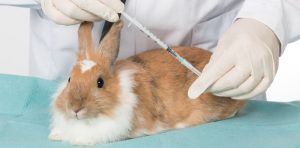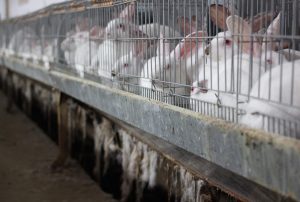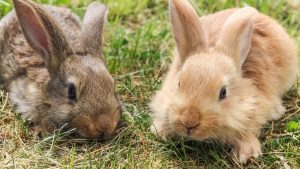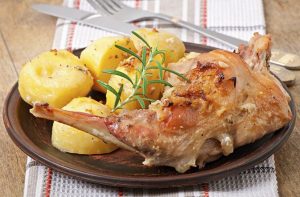Although rabbit meat is nutritionally a great choice of meat, there are a few ethical issues behind its consumption, as well as dangers in production. These issues come from the cramped conditions intensely farmed rabbits are kept in, as well as rabbits’ weak immune systems leading to a substantial use of antibiotics.
Nutrition of rabbit meat
Despite the issues in production of rabbit meat, it is nutritionally a great choice of meat. For example, it contains almost half the recommended daily intake of protein per 100 grams. This is around double the amount of protein per 100 grams of beef. Rabbit also contains a larger variety of vitamins and minerals, making it very nutrient-rich overall when compared to other meats. It is a lean meat, with a fairly low fat content. This makes it a good choice for pregnant women, or people interested in increasing their protein intake.
Difficulties in production
Rabbit meat is difficult to produce rapidly as rabbits are prone to disease. Their immune systems are not as strong as other captive-bred animals used for meat. The rabbits therefore need lots of antibiotics to protect them from disease. This can cause a rise in antibiotic resistance.

Antibiotic resistance happens when bacteria develop the ability to survive the drugs designed to kill them. The bacteria with the developed tools to survive then continue to divide into many more.
The main disadvantage of this is that if a human becomes infected with the resistant bacteria, it is very difficult to treat the infection. We therefore have to continuously develop and use stronger antibiotics, which is expensive and dangerous.

Antibiotic resistance is much more likely to occur when antibiotics are used more often, so avoiding widespread use of antibiotics is key.
Rabbit farming in the UK is very small scale, but in other European countries is is much more widespread. Production reaches over 300 million rabbits a year!
Ethical issues behind eating rabbit meat
In Europe, most rabbits are intensely farmed. Each rabbit lives in a small space of about A4 paper size, and a height of about the length of their ears. These cages are stacked in tiers in large sheds containing tens of thousands of rabbits raised for meat.
These cages are very uncomfortable for the rabbits, made entirely of bare wire.

Since rabbits are naturally social animals, living alone can be very stressful for them. In the wild, rabbits live in groups of around 15, and will nest together and groom one another. Putting rabbits in a wildly different environment than they are naturally comfortable in could be seen as inhumane.
However, this doesn’t distinguish rabbit farming from other animal farms. Chickens, pigs and cows see similar conditions. To avoid eating meat made by intensive farming, try to shop locally from farm shops and markets. These rabbits live in large pens with a pasture area. Kept in groups, they will use their space for social interaction and play. Hay and toys will allow the rabbits to keep themselves occupied.

Even in these more satisfactory conditions, you may still see rabbits as companions, and not food. Rabbits are intelligent, curious, and affectionate creatures. You may feel as though rabbits deserve to be loved, rather than kept only for meat.
Animal club services
Animal–Club provides animal parties or animal handling workshop where your will be able to see, learn and interact with the hamsters and other wonderful animals with the help of our presenters. Our mobile zoo has many friendly animals such as rabbits, tarantulas, geckos, vinegaroons and more that will be perfect for an animal party. We can also come over to your school for an animalschool visit or arrange for an animal workshop with us where the children can learn about animals and have fun too.




